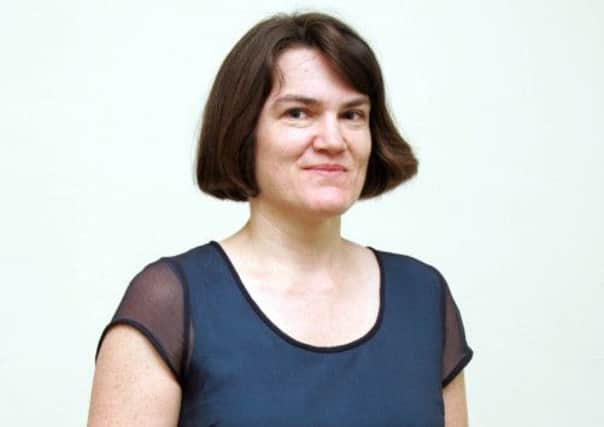Obituary: Kirsty Milne, journalist and academic


KIRSTY Milne, who has died aged 49, was a journalist, an academic and a leading columnist on The Scotsman in the early years of Scottish devolution. After a career that took in Fleet Street, the New Statesman magazine and then a move back to Scotland for the establishment of the parliament in 1999, she opted for a complete change and moved successfully into academia.On The Scotsman, she was a highly esteemed adviser to several editors, providing sensible counsel as she endeavoured to make sure the paper’s news coverage and leader columns were grounded and based on reality. When she was asked to write leaders herself, this often involved balancing competing demands and crafting an elegant compromise.
In her own columns, her writing style – by turns cool, playful and always rooted in research – made her a delight for readers. But she also brought a sharp intelligence to bear and had that rarest of journalistic gifts: the ability to make those who might not agree with her view at least stop and think.
Advertisement
Hide AdAdvertisement
Hide AdAnd then she did what many journalists claim they are just on the point of doing, and hardly ever do. She struck out in an entirely fresh direction, becoming an academic at Harvard and then Oxford. In this new endeavour, she was only getting started by the time of her death.
Born in Isleworth, in Middlesex, Kirsty was fiercely proud of her Scottish and Scandinavian roots, a blend that perhaps explained the forceful way in which she always insisted on her name being pronounced “Keersty”. In 1973 when her father, Alasdair Milne, who became director-general of the BBC, moved the family from outside Glasgow to London, his young daughter was distraught and always nursed the idea that she might return.
School at St Paul’s Girl School was followed by a scholarship to Magdalen, Oxford, where she read English and got a First. She moved straight into journalism, first as a trainee at the BBC, then at New Society and then as a freelance, writing for several newspapers.
At the New Statesman from 1993, she was at the centre of the ideological battles on the magazine over the future direction of the Left and what became New Labour, under Tony Blair. Colleagues, even those from rivals factions on the magazine, remember her warmly as a journalist of integrity with great energy.
The chance to return to Scotland finally came with the establishment of a parliament in 1999. She left London and joined the Sunday Herald, although soon after an offer to join The Scotsman arrived, which was then edited by Alan Ruddock.
It was an optimistic period in which it seemed that Edinburgh – with its expanding financial services industry and nascent democratic institutions – might be on the cusp of a new golden age. Kirsty moved to the New Town and then married Hugh Shaw Stewart, an architect based in London.
In The Scotsman’s daily conferences, where stories and ideas are discussed, she became a strong and respected presence. “Kirsty was always the smartest person in the room,” as one of her colleagues put it. But the reality of devolution and the new parliament was not nearly as exciting or journalistically challenging as she had hoped it would be.
Her attention switched to a wide range of other subjects. As well as writing knowledgeably about the Blair government, her attention was caught by the rise of direct action, and protest groups in the green movement and elsewhere. She realised well ahead of many of her journalistic peers that traditional, mainstream party politics was in serious decline.
Advertisement
Hide AdAdvertisement
Hide AdThe sense that journalism had never accommodated her full range of intellectual and literary interests, prompted her to consider moving into academia.
In 2004, she was appointed Nieman Fellow in journalism at Harvard University, and an MA in intellectual and cultural history followed at Queen Mary, University of London. In 2006 she returned to Magdalen, Oxford, and began work on her doctorate in English language and literature. Her colleagues and friends in academia found she brought the same wonderful blend of wit and wisdom to her work that she had exhibited in journalism.
Her doctorate, on themes raised by the puritan notion of Vanity Fair in the Pilgrim’s Progress, explored how the meaning of a literary motif changes through time. A burgeoning academic career was cut short following the diagnosis of lung cancer, even though Kirsty had never smoked. Her doctoral thesis –Vanity Fair from Bunyan to Thackeray: Transformations of a Trope – was completed and is to be published as a book. Dr Kirsty Milne is survived by her husband Hugh, and her brothers Ruairidh and Seumas.
IAIN MARTIN